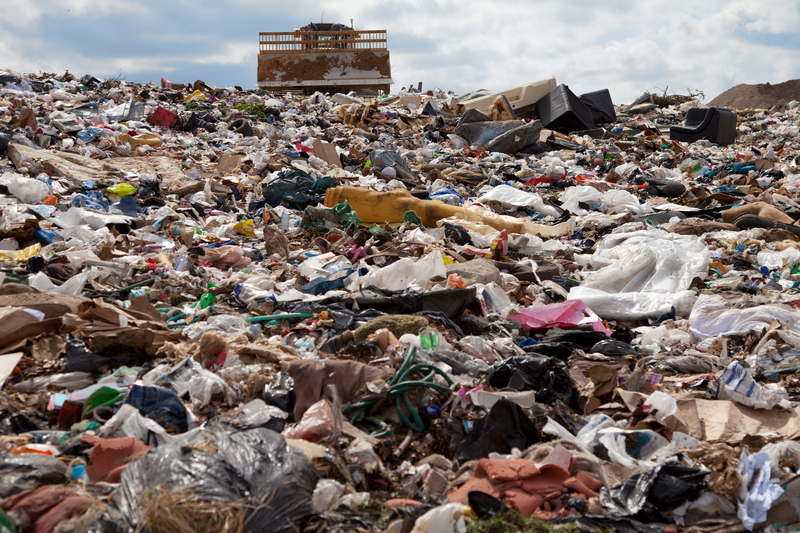Top Tips for Waste Prevention in Your Residence
Waste prevention at home is a crucial environmental responsibility that every individual can adopt. Minimizing residential waste not only conserves resources but also saves money and helps protect our planet. Whether you rent an apartment or own a house, creating a sustainable household is easier than you may think! In this comprehensive guide, we'll explore the top tips for waste prevention in your residence, offering actionable advice and practical strategies to help you reduce, reuse, and recycle more effectively.

Why is Residential Waste Prevention Important?
Every year, the average family generates a significant amount of garbage, from packaging materials to food scraps. Residential waste contributes to overflowing landfills, greenhouse gas emissions, and unnecessary resource depletion. By focusing on waste reduction at home, you can:
- Conserve natural resources by reducing demand for raw materials.
- Lower household expenses through thoughtful purchases and efficient use.
- Decrease landfill waste and associated pollution.
- Encourage eco-friendly habits in your family and community.
Reducing waste in your home is a collective effort that starts with small, conscious choices.
1. Rethink Your Consumption
Adopt a Minimalist Mindset
The foundation for effective waste prevention at home is to simply buy less. Ask yourself:
- Do I really need this?
- Can I borrow, rent, or do without?
- Will this item last a long time, or is it disposable?
A minimalist approach to shopping helps eliminate unnecessary purchases and saves both space and money.
Choose Quality Over Quantity
Investing in durable, high-quality products reduces the need for frequent replacements and helps cut down on household waste. For example, select furniture, clothing, or appliances that are built to last.
2. Reduce Packaging Waste
Buy in Bulk
Buying food items, cleaning supplies, or toiletries in bulk reduces individual packaging. Use your own reusable containers at bulk stores to further limit packaging waste.
Opt for Products with Minimal Packaging
- Choose items with recyclable or compostable packaging.
- Support brands that use eco-friendly packaging materials.
- Avoid single-use plastics whenever possible.
Pro Tip: Take reusable cloth bags, produce sacks, or jars to the store to decrease single-use bag use.
3. Embrace the 3Rs: Reduce, Reuse, Recycle
Reduce
- Go paperless by switching to digital bills and statements.
- Cancel junk mail and unwanted catalog subscriptions.
- Limit disposable items like napkins, plates, cutlery, and water bottles.
Reuse
- Repurpose glass jars for storage or DIY projects.
- Utilize old T-shirts or towels as rags or cleaning cloths.
- Host swap events with friends or neighbors for clothing, tools, or books.
Recycle
- Know your community's recycling rules and sort correctly.
- Rinse containers before recycling to avoid contamination.
- Recycle batteries, electronics, and hazardous waste at designated facilities.
Remember, recycling at home is a critical step, but reducing and reusing should always come first.
4. Prevent Food Waste
Plan Your Meals
Planning meals and shopping with a list can drastically reduce food waste in your home.- Check your fridge and pantry before heading to the store.
- Buy only what you need and can realistically use before it spoils.
- Learn to love leftovers and reinvent them into new meals.
Store Food Properly
- Use airtight containers to keep food fresh longer.
- Freeze surplus fruits, vegetables, or leftovers for future use.
- Practice "first in, first out" to ensure older products are used up first.
Compost Kitchen Scraps
Instead of sending food waste to the landfill, start a compost bin for fruit peels, coffee grounds, eggshells, and more. Composting cuts your garbage output and creates nutrient-rich soil for gardening.
5. Use Reusables Over Disposables
Switch to Reusable Products
- Water bottles, coffee cups, and lunch containers
- Silicone food bags and beeswax wraps
- Fabric grocery bags and produce nets
- Rechargeable batteries instead of single-use
Every reusable item replaces dozens, if not hundreds, of disposable counterparts in a year.
6. Buy Second-hand and Donate Unused Items
Shop Second-hand
- Thrift shops, online marketplaces, and garage sales offer gently-used furniture, clothes, and electronics at a fraction of the cost--and without wasteful packaging!
Donate, Don't Discard
- When you outgrow clothes, redecorate, or upgrade appliances, donate usable items to local charities, shelters, or recycling programs.
7. Practice Sustainable Cleaning and Maintenance
Make Your Own Cleaners
Homemade cleaners from simple ingredients like vinegar, baking soda, and lemon not only reduce packaging waste but are non-toxic and budget-friendly.
Maintain and Repair
- Fix leaky faucets, squeaky hinges, and worn-out clothes instead of replacing them.
- Regular maintenance prolongs the lifespan of appliances and household goods, reducing replacements and waste.
8. Get the Household Involved
Educate and Inspire
- Share compelling facts about the impact of landfill waste.
- Set family goals for reducing waste and reward progress.
- Assign roles--such as "compost captain" or "recycling monitor"--to make it fun and effective.
Lead by Example
Adopting waste prevention habits at home can influence friends, family, and neighbors to follow suit, creating a positive ripple effect in your community.
9. Harness Technology for Zero-Waste Living
Use Apps and Tools
- Download apps to track food inventory, monitor expiry dates, or locate zero-waste shops.
- Automate bill payments and opt out of paper receipts where possible.
Upgrade Smartly
When replacing electronics or appliances, choose energy-efficient models and recycle old devices under e-waste programs.
10. Get Creative with Upcycling
Turn Trash into Treasure
- Upcycle old containers into planters, organizers, or crafts.
- Turn worn jeans into tote bags, or glass bottles into vases or lamps.
- Mend broken items instead of discarding them; some community centers offer repair cafes for this very purpose.
A little imagination goes a long way in preventing unnecessary waste at home.

Frequently Asked Questions (FAQs) About Home Waste Prevention
What is the easiest way to reduce waste in my home?
Start by switching to reusable items, such as bags, bottles, and containers. Also, buy only what you need, and compost your kitchen scraps.
Can composting really make a difference?
Absolutely! Composting can reduce your household garbage by up to 30%, enrich garden soil, and decrease methane emissions from landfills.
Are there places to recycle old electronics?
Yes, many cities have special collection days or drop-off centers for electronics recycling. Check with your local waste authority for details.
How can I encourage my family to reduce waste?
Share the environmental and financial benefits, set achievable waste reduction goals, and involve everyone in implementing new habits for residential waste reduction.
Conclusion: Start Your Waste-Free Journey Today
*Preventing waste in your residence* isn't about achieving perfection; it's about progress. Simple, consistent actions--like choosing reusables, recycling wisely, and composting--have a meaningful impact. By implementing these top tips for waste prevention in your home, you help pave the way for a greener, cleaner, and more sustainable future.
Remember: Every small step counts. Start with one or two changes, and gradually incorporate more practices into your everyday life. Together, we can make a significant difference in reducing household waste and building a better planet for generations to come.